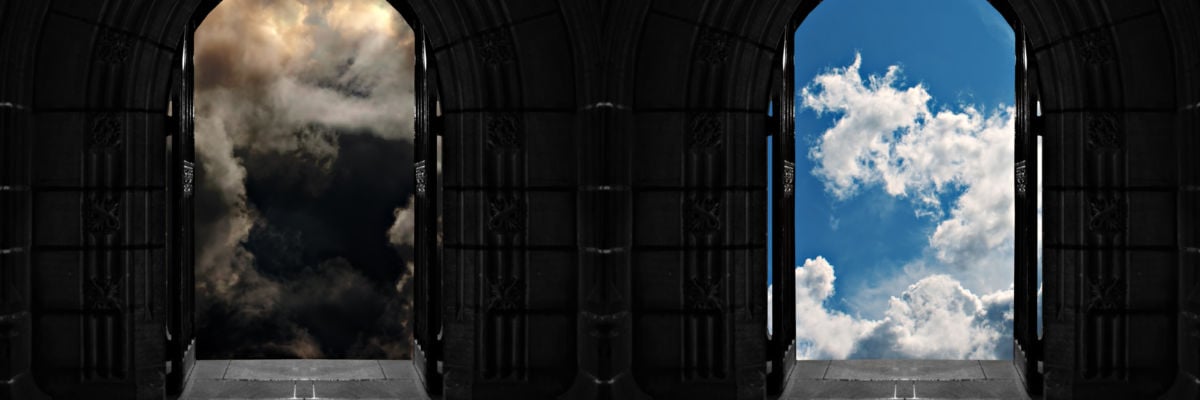C
ColoradoCatholic
Guest
Hell is just, its a result of our Free Will. Hell is for those who want nothing to do with God, and God respects their choice…if they want nothing to do with Him, he will let them live completely isolated from His presence.
Heaven is the default plan that God wants for you. Hell is the opposite…its the plan of those who love themselves more than God.
God is just because he gives you the choice to pick whatever you want, and in this life if you figure out that “your plan” (not you specifically, the general “your”) isn’t so great…well He also is completely merciful and will accept you lovingly back. Parable of the Prodigal Son.
Heaven is the default plan that God wants for you. Hell is the opposite…its the plan of those who love themselves more than God.
God is just because he gives you the choice to pick whatever you want, and in this life if you figure out that “your plan” (not you specifically, the general “your”) isn’t so great…well He also is completely merciful and will accept you lovingly back. Parable of the Prodigal Son.
Last edited:

